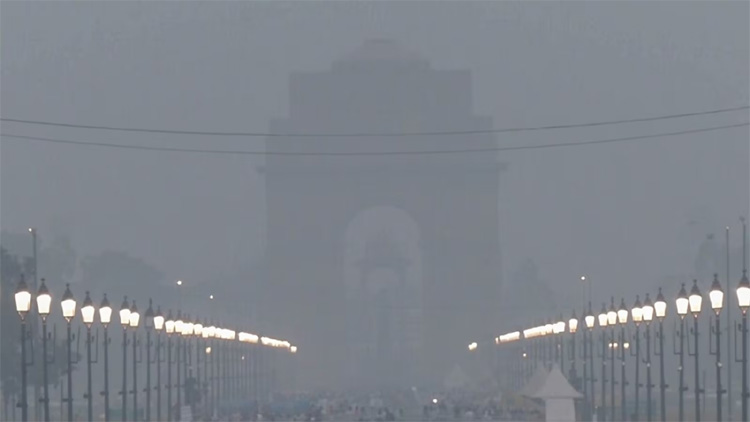Cricketers battle Delhi’s ‘severe plus’ air ahead of WC match; high-level meet today
The air quality in Delhi has now touched the last stage of the index to ‘severe plus’ leaving citizens vulnerable to severe health conditions.
The air quality index (AQI) in the national capital on Sunday clocked at 454 which prompted the central government to implement all possible measures to check the air pollution level from breaching any new levels.
According to real-time data, the average AQI has been recorded at 470 today morning which is almost 20 times above the recommended limit given by the World Health Organisation (WHO).
Bird’s eye view near AIIMS, Delhi, shows how the national capital is wrapped with toxic air:
Increased burning of paddy straw in Punjab, Haryana and Uttar Pradesh ahead of the rabi crop season has been regarded as one of the reasons for the devastating air quality in Delhi. However for Delhi environment minister Gopal Rai, stubble burning only in Haryana and Uttar Pradesh, not in Punjab, has been impacting the AQI.
The India Meteorological Department (IMD) has forecast no rainfall in the city which could improve the AQI by forcing down air pollutants.
A high-level meeting is scheduled for today to take stock of the deteriorating AQI and the implementation of stage 4 under the Graded Response Action Plan (GRAP).
The New Delhi-based Indian Agricultural Research Institute (IARI) said a total of 4,160 farm fires have been recorded till Sunday which is highest so far for this season. Punjab alone has reported 3,230 incidents of stubble burning which state’s highest in a day for this season.
Rai contended that Punjab, an AAP ruled state, has recorded less stubble burning if compared with last year. He said the farm fires in the state do no have as much impact on the AQI as smoke from Haryan and UP does.
Ahead of the next cricket World Cup match, Bangladesh and Sri Lankan cricketers find it difficult to get some practice sessions done. Asthmatic Bangladesh cricketers remained indoors while Sri Lankan players wore masks.
Among the types of health hazards, people in Delhi are prone to coronary artery diseases like heart attack, brain stroke and arthritis as Dr Piyush Ranjan, additional professor, department of medicine, AIIMS, drew relation between them and air pollution.


Comments are closed.